When it comes to the essential nutrients and vitamins people look for in foods, one of the most important is definitely potassium. Discover 11 Fruits With Potassium to Boost Your Heart Health and Muscle Function.
Potassium is a mineral that is used by the body to maintain balanced levels of fluid within its cells.
It is also an important mineral for aiding muscle contraction and helping to maintain appropriate blood pressure.
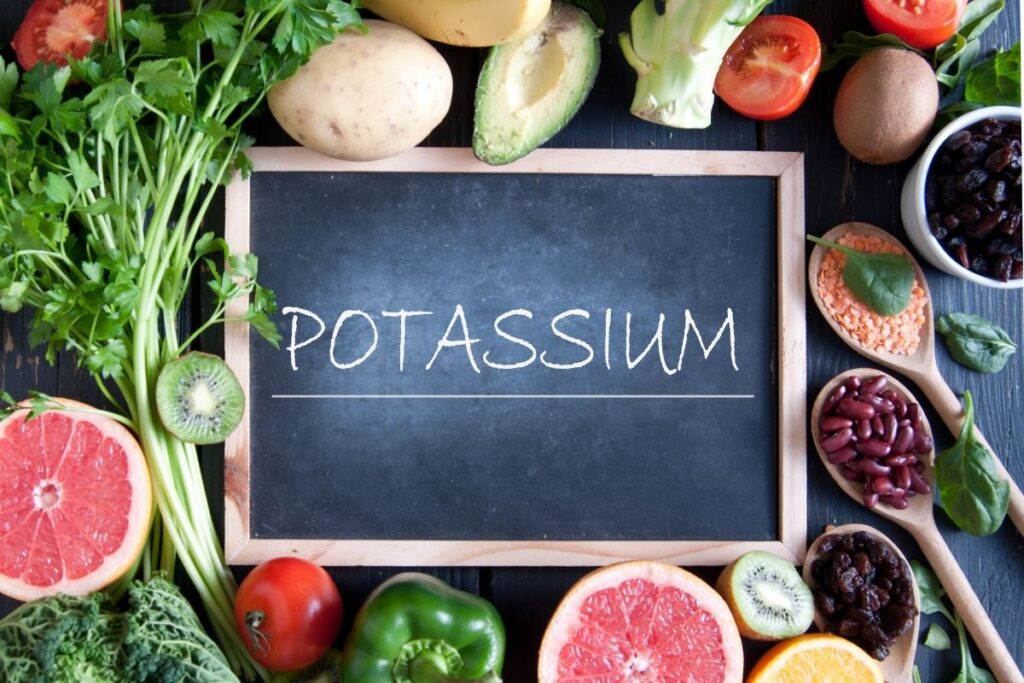
Essentially, potassium is a fantastic thing for your body and it can’t be a bad idea to seek out foods that contain a lot of it.
Fruits are often a fantastic source of potassium and are naturally loaded with the stuff.
In this article, we’ll be going over some of the most potassium-rich fruits out there to keep your body in top condition!
1. Avocados: 485 mg per 100g
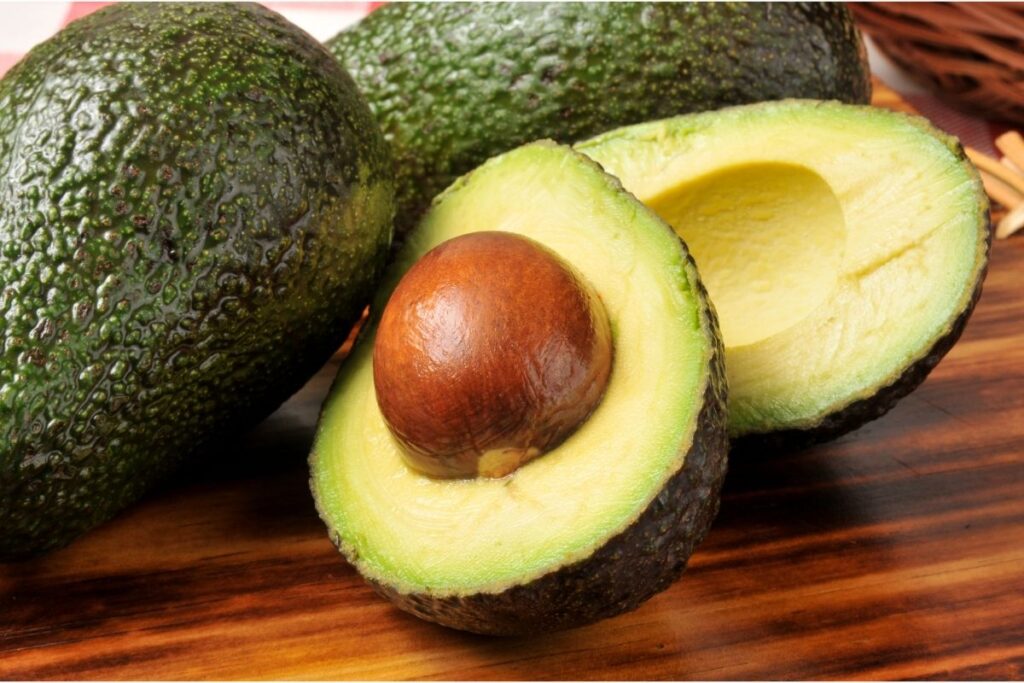
Avocados are one of the trendiest fruits in the world these days and have the highest potassium levels.
Whether you want to slice it, smash it, or blend it up, there are plenty of ways to consume a delicious avocado!
Not to mention, they’re also very good for you. You can expect the average avocado to contain around 975 mg of potassium, plenty of protein, and a great amount of fiber too.
Avocados tend to get a bad reputation because of how much fat it contains. However, the fat in avocados has its own health benefits, providing consumers with natural energy to go about their day.
2. Kiwi Fruits: 312 mg per 100g
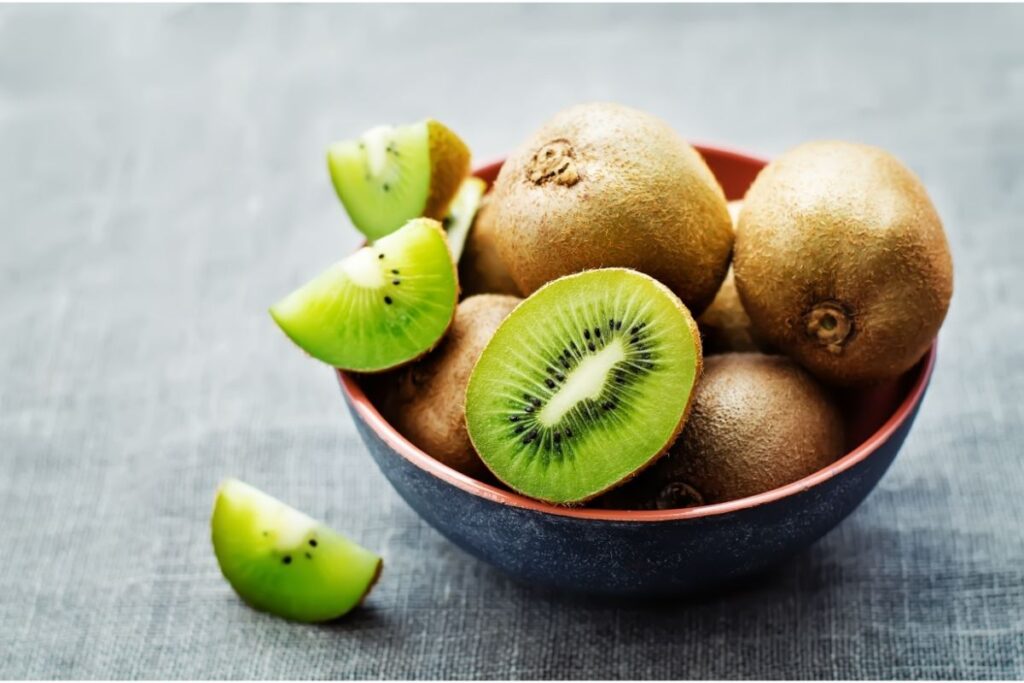
A somewhat exotic fruit, kiwis were once seen as a very luxurious food but are now commonplace in any grocery store’s fresh produce section.
People will most commonly eat kiwi fruits raw, as a snack, and are delighted by the satisfying, crunchy texture and smooth flavors.
You’ll find significantly less fat in a kiwi fruit than in an avocado but still plenty of potassium and fiber.
Interestingly, kiwi fruits are also pretty rich in carbs, again providing those who eat them with a whole lot of natural energy.
RELATED: Potassium for Houseplants: How to Use It for Happier and Healthy Plants?
3. Cantaloupe: 267 mg per 100g
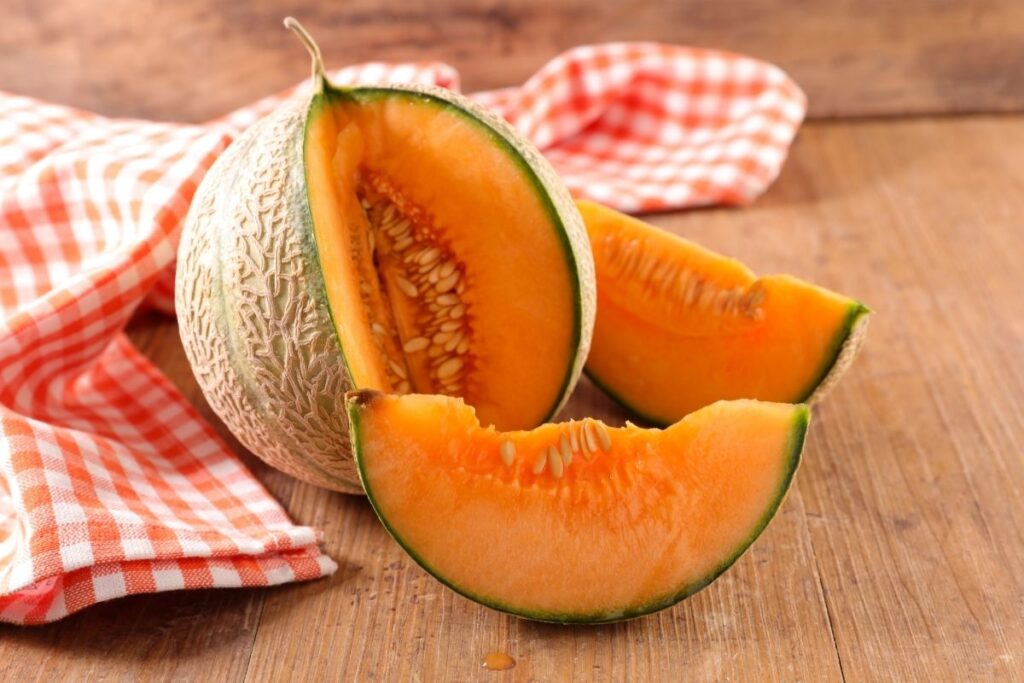
The gorgeously sweet flavors of a cantaloupe melon have made them a favorite fruity snack for many people across the world.
These days, California is the world’s biggest producer of cantaloupe melons, with Arizona and Georgia not far behind.
This means that all grocery stores across the United States are often treated to some truly fresh cantaloupe melons to fill their shelves with, giving consumers some high-quality products to take home.
As well as roughly 470mg of potassium per cup of cantaloupe, you can expect to find around 14g of natural sugar.
This is partially what gives the melons their characteristically sweet flavor and makes them so easy to eat but can eventually do damage to your teeth over time.
4. Apricots: 259 mg per 100g
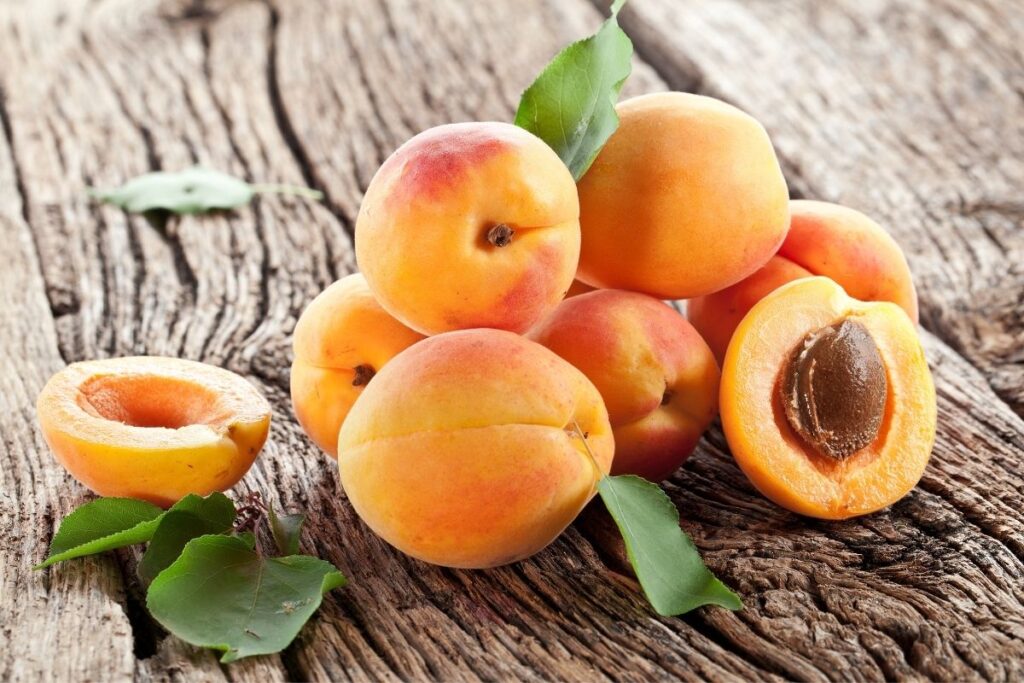
These juicy, stoned fruits are a favorite lunchbox filler for many families and are just as good fresh as they are dried.
It’s another fruit that is chocked full of carbs and sugar, giving it a pretty sweet taste and delightful flavor.
Of course, eating too many apricots can do damage to your teeth over time but won’t be harmful when eaten in moderation.
They also come with plenty of protein for those who eat them, as well as great hydration because these fruits are made up of around 87% water.
5. Cherries: 222 mg per 100g
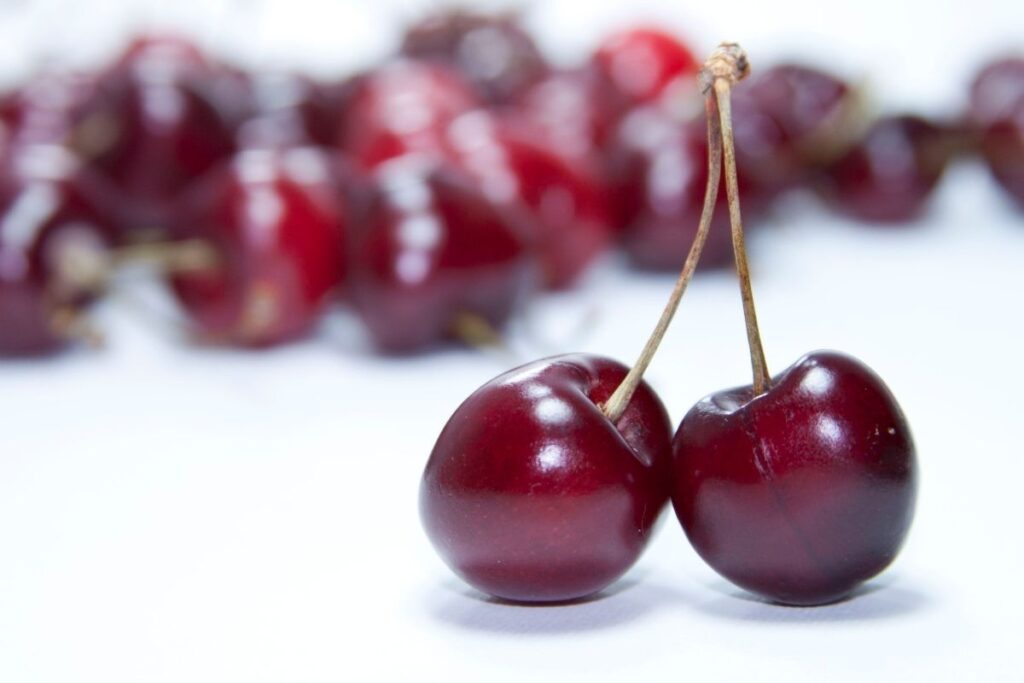
Cherries are a great accompaniment for a variety of dessert dishes, making an excellent topper for a cake or tiramisu.
They’re also just as well-placed as a decorative feature in a cocktail, providing a little fruity twist to many alcoholic beverages.
Basically, cherries are one of the most fun fruits out there, but that doesn’t stop them from also providing plenty of health benefits at the same time.
At 97 calories per cup, as well as 25g of carbs and 20g of sugar, there’s a lot about a cherry that would indicate how unhealthy it is.
However, the relatively high levels of potassium and fiber more than makeup for this, meaning you don’t need to feel guilty for tucking into some cherries as a cheeky snack!
6. Oranges: 181 mg per 100g
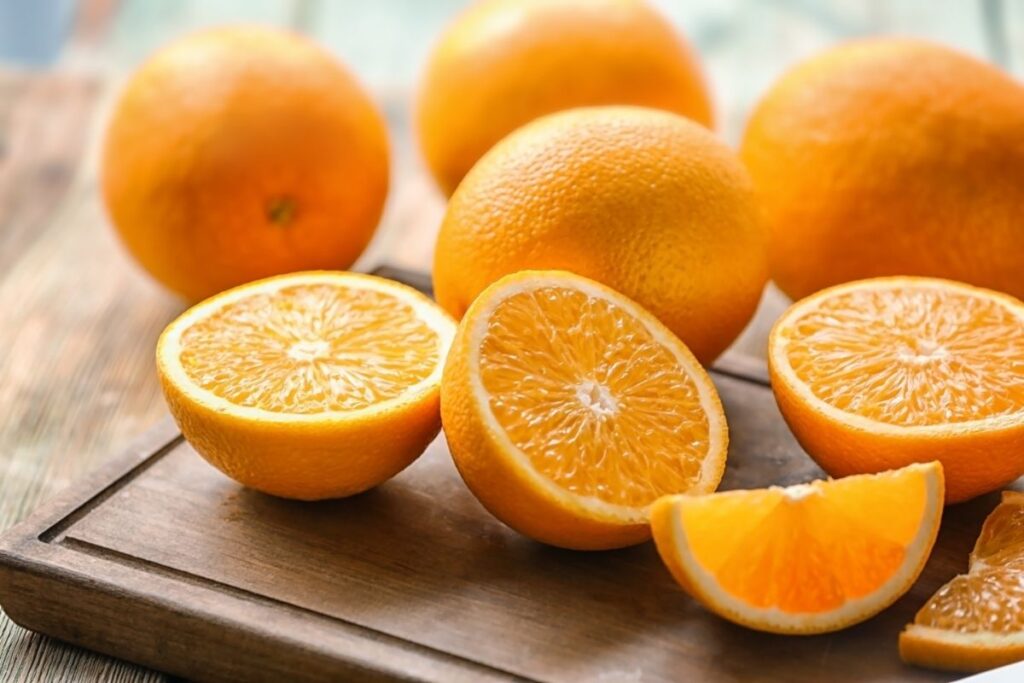
Oranges are one of the world’s favorite fruits. The tangy, citrusy flavor makes it very easy to eat them and the health benefits aren’t bad either.
You’ll often see athletes eating an orange during breaks in a sporting event because of the high amounts of sugar, carbs, and other natural energy sources packed into each segment.
In fact, another reason for the popularity of oranges as a snack is how convenient they are to eat.
Naturally portioned into neat little slices, it’s plenty easy to take an orange on the go with you and not have to worry about getting messy.
Orange juice also makes a fantastic drink but be wary of added preservatives and other chemicals.
None of these additives will reduce the amount of potassium you’ll find in each glass. But there could be other detrimental effects. So make sure you look at the label of your juice carton before buying it.
7. Tangerines: 166 mg per 100g
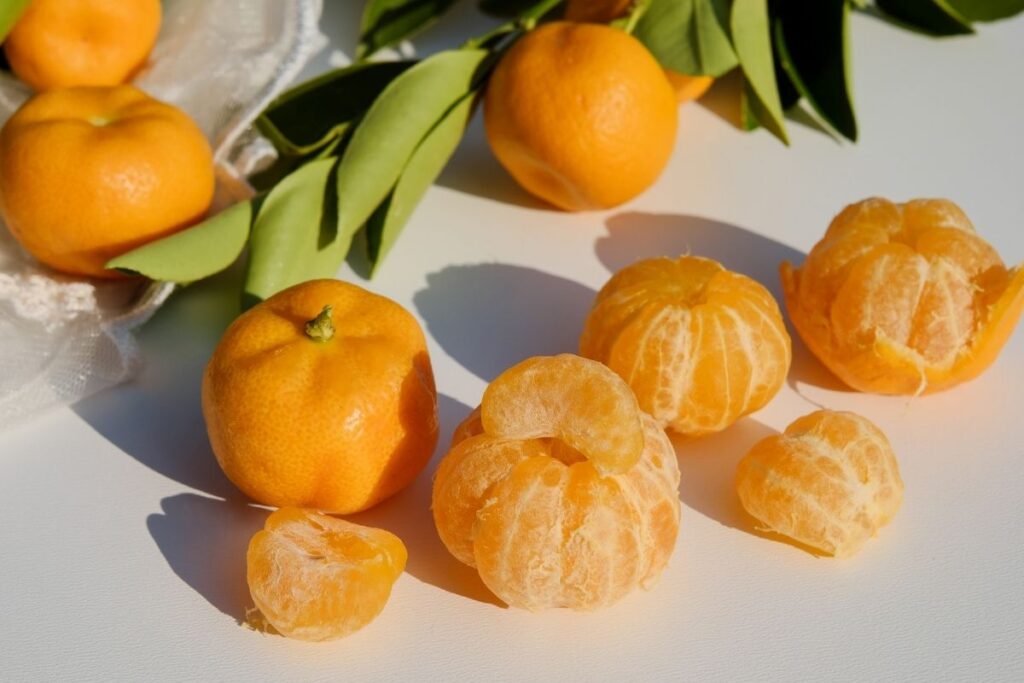
This fruit is a type of orange and the two are often quite understandably confused for one another.
The main difference between the two varieties is the size. Tangerines often grow much smaller than oranges, even when fully ripe.
Interestingly, the two can also differ somewhat in color. Tangerines tend to be a little darker and closer to red than most oranges, making them slightly more distinguishable.
Regardless of the aesthetic differences, both tangerines and regular oranges have pretty much the same nutritional makeup.
They are both pretty high in carbs and sugar, whilst both provide plenty of potassium to those who eat them.
8. Nectarines: 201 mg per 100g
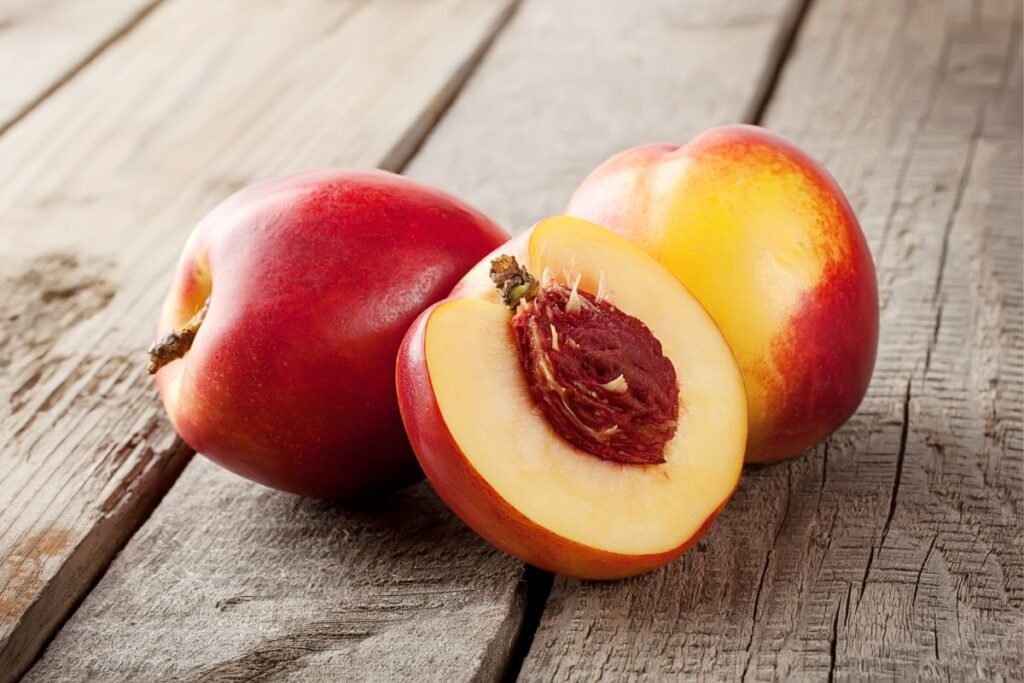
A variety of the peach family with slightly smoother skin. Nectarines are another favorite snack to people all over the globe.
They are thought to have originally been domesticated in China thousands of years ago. But today they grow in pretty much every part of the world.
This is because nectarines can endure some pretty tough climates while growing. Making them a very resilient fruit and a great friend to farmers who grow them.
In terms of nutritional value, nectarines usually contain a little more protein than your average fruit. But will also still be full of carbs and sugar.
Of course, each nectarine will also contain plenty of potassium to keep your body in prime working condition too!
9. Mulberries: 194 mg per 100g
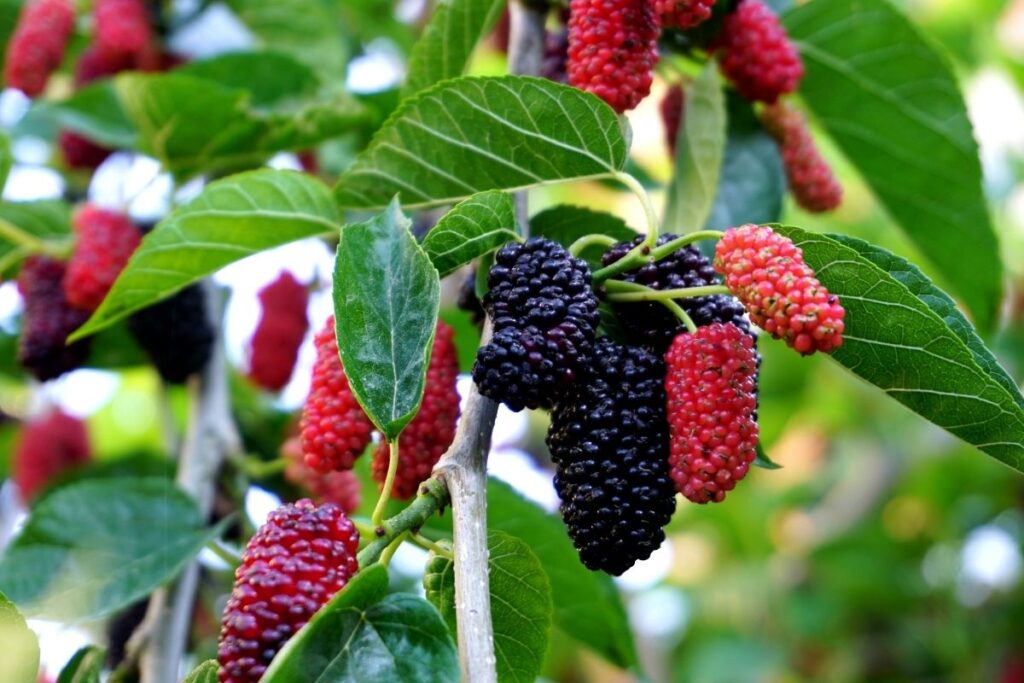
This isn’t a fruit that most people will be completely familiar with. But you’ll definitely want to get your hands on some when you see what they look like.
These fruits actually look just like elongated versions of common blackberries. Seriously, it’s like somebody stretched out a blackberry and hung it on a tree!
Thanks to all of the complex minerals and properties of mulberries. The fruit has often been used for medicinal purposes, supposedly working wonders for the central nervous system.
Indeed, mulberries are still made up primarily of water, carbs, and sugar. Though the quantities of the former two ingredients are slightly less than the average fruit on this list.
In fact, mulberries are one of the overall healthiest fruits out there, providing a great balance of all the important nutrients and minerals you can find in fruit, including plenty of lovely potassium.
10. Guavas: 417 mg per 100g
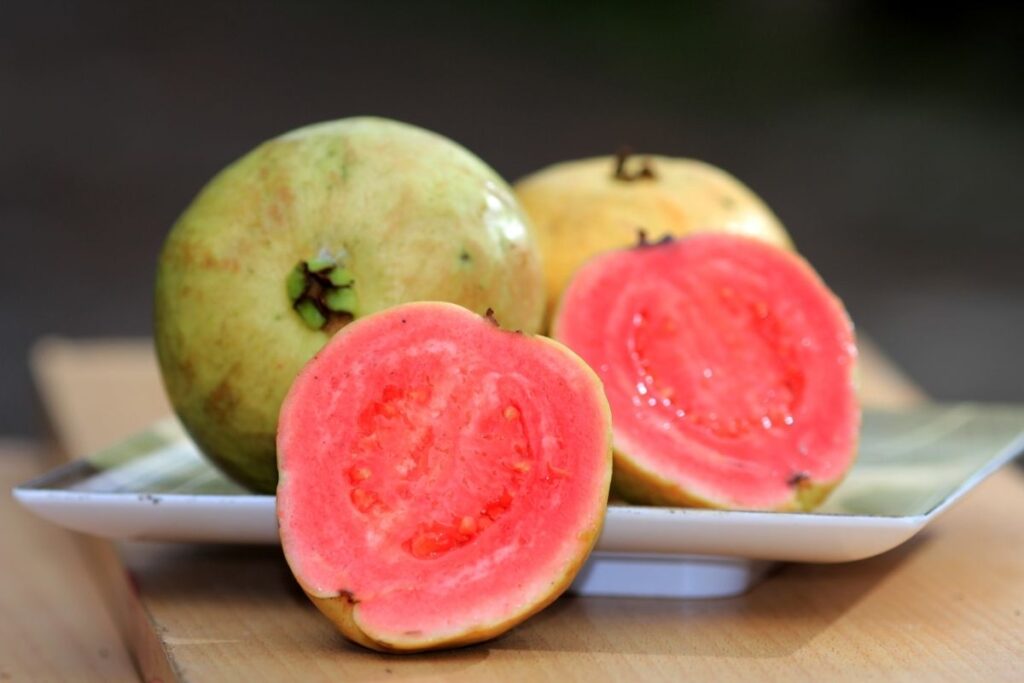
A strong competitor to the avocado, guava fruits contain a great deal of potassium.
The bright green skin gives way to even brighter pink flesh inside, making each guava fruit look like a rainbow of healthy goodness!
The fruits grow most commonly across Central and South America, as well as some species being grown commonly in Asia.
This means it’s difficult to get your hands on truly fresh guava in North America or Europe. But it’s certainly not impossible.
Of course, these fruits also contain a lot of carbs and sugar. But the same is true of pretty much every fruit we’re looking at here.
Instead, the focus should be on the vast amounts of potassium you’ll find in each and every guava fruit.
11. Bananas: 358 mg per 100g
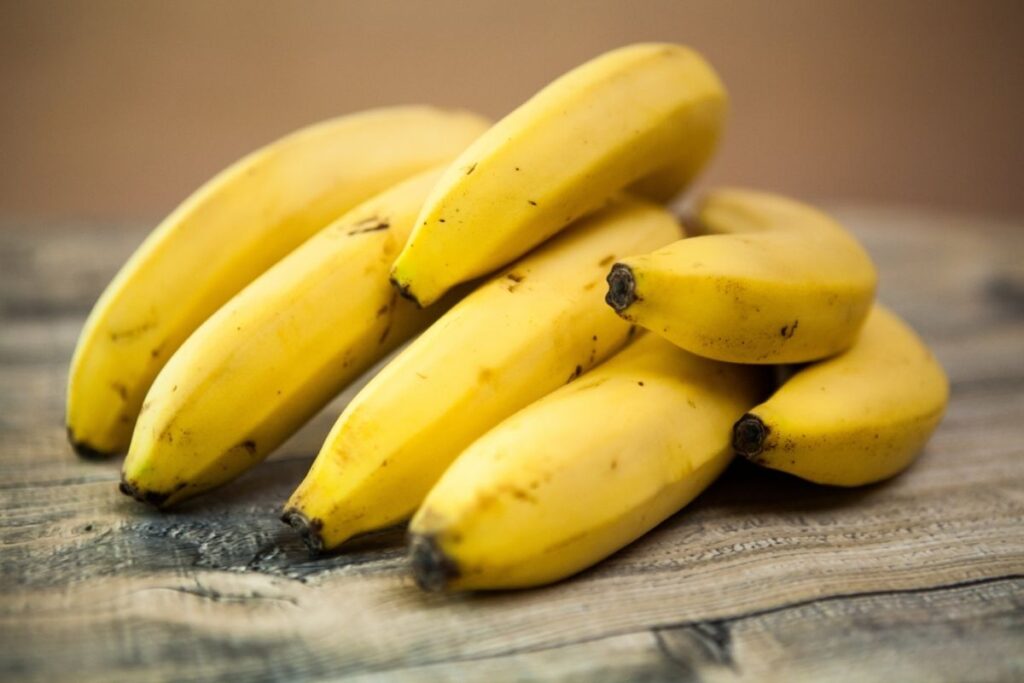
The final fruit we’re looking at is, of course, the banana.
When asked to think of a potassium-rich fruit, most peoples’ minds will often be drawn to a banana because of the way they are used in sports.
It’s common to see a tennis player tucking into a banana between sets of a match. And the fruit can be seen getting eaten on pretty much any sports TV channel!
Whilst they do contain an impressive proportion of potassium in their mineral makeup. Bananas actually contain less of the stuff than guavas or avocados.
However, bananas are often favored by sportspeople because of how convenient they are to get a hold of. And how easy it is to eat one during a short break in a match.
Final Thoughts
The fruits we’ve listed in this article aren’t the only potassium-rich fruits in the world. There are plenty that provides a great source of the mineral that we didn’t have space to include.
However, regardless of which fruits you choose to work into your diet. We can pretty much guarantee you’ll be better off with all that potassium running through your body!







